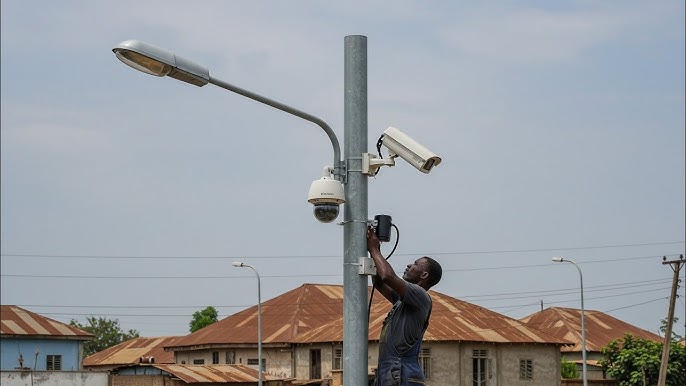Nigeria is witnessing a troubling resurgence of student kidnappings across tertiary institutions, secondary schools, and even basic education centres, reviving painful memories of the 2014 Chibok abduction.

From the infamous mass kidnapping of over 200 Chibok schoolgirls in Borno State to the most recent attack in Kebbi State, terrorists—often described as armed bandits—continue to target schools with alarming precision.
The latest incident occurred just days ago when gunmen invaded Government Girls Comprehensive Secondary School, Maga, in Kebbi State, abducting 25 schoolgirls in a pre-dawn raid that shocked the nation and drew international attention.
But these attacks are not limited to basic or secondary education. Tertiary institutions have endured similar horrors.
Egalitarian Voice has consistently reported incidents such as the 2021 attack on Greenfield University in Kaduna and the abduction of dozens of students from the Federal College of Forestry Mechanisation, Afaka. Only months ago in Kogi State, terrorists stormed the Confluence University of Science and Technology, kidnapping several undergraduates attending a night class.
These repeated events have exposed significant weaknesses in school security infrastructure, especially in rural regions. Beyond the immediate trauma, these kidnappings inflict long-term psychological and financial burdens on families and communities. Many students’ education is disrupted indefinitely—either due to abduction or parents choosing to withdraw their children from school for safety.
The persistent failure to apprehend and prosecute perpetrators further emboldens criminal elements, perpetuating a cycle of impunity.
‘Cameras Could Make a Difference’ — Expert Speaks
In an exclusive interview with Naija News, Engr. Rosiji Jacob Oluwafemi, CEO of Triquantum Innovations Ltd, expressed deep concern over the rising wave of banditry, kidnapping, and killings across the country.
Speaking from a cybersecurity and physical security perspective, Engr. Oluwafemi explained how modern CCTV technology could help schools detect threats early and mitigate attacks.

“Many people think CCTV is just about recording videos. That’s outdated,” he said.
“Modern systems integrate motion analytics, perimeter alerts, night vision, and even AI-powered behaviour detection.”
According to him, schools—especially those in high-risk areas—stand to benefit significantly from a well-planned surveillance layout.
“You may not completely stop an attack, but you can drastically reduce the element of surprise.
Security teams can respond faster, and in some cases, attackers back out when a location is actively monitored.”
Would CCTV Have Helped in the Kebbi Attack?
Responding to a common public question, he stated:
“Maybe it wouldn’t have stopped it entirely, but yes, it would have made a noticeable difference.
Authorities would have had real-time visuals on how the attackers approached, how many they were, and the direction they fled.
Cameras don’t only record; they deter. Even their presence alone discourages criminals.”

How Everyday Nigerians Can Benefit from Modern Surveillance
With insecurity spreading from schools to homes, religious centres, markets, and residential communities, Engr. Oluwafemi also highlighted how ordinary citizens can now access affordable surveillance solutions.
“Today, you don’t need to be wealthy. There are low-cost Wi-Fi cameras, solar-powered outdoor units, and smart doorbells with instant mobile alerts.
Installing even two or three cameras around entry points can deter most break-ins.”
Cameras in Public Spaces: A National Necessity
He emphasised that public surveillance remains one of the most effective tools for crime deterrence and investigation.
“When car parks, markets, transport hubs, and highways are monitored, criminals have fewer places to hide.
It also helps with emergency response and crowd control.”
What Government Should Do Differently
While acknowledging current efforts, Engr. Oluwafemi urged the government to adopt a long-term, coordinated strategy.
His recommendations include:
- Deploying cameras across schools, hospitals, highways, markets, and transport hubs
- Creating state-level monitoring hubs staffed by trained analysts
- Partnering with telecom and tech companies for system maintenance
- Establishing clear policies on data storage, privacy, and law enforcement access
“When surveillance is coordinated, the value multiplies.
We move from reactionary policing to intelligence-driven security.”
Final Message to Nigerians
Oluwafemi concluded with a simple but firm message, “The world has changed. Crime has evolved. Our response must evolve too.
Cameras don’t replace security personnel—they empower them.
They protect our children, our families, and our businesses. And most importantly, they give us evidence, which is often missing in many security incidents in Nigeria.”
Credit: Naija News
📌Don’t Miss Out! Join our WhatsApp Channel for Breaking News, Jobs & Real-Time Updates
https://whatsapp.com/channel/0029Va9qtzXHwXbIyBGtjk2o








